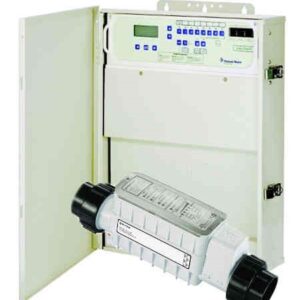Solar Pool Heater
A solar pool heater offers a sustainable, cost-effective way to keep your pool warm using the power of the sun. Perfect for environmentally conscious pool owners, solar pool heaters utilize solar energy to provide efficient heating without relying on fossil fuels or electricity. Whether you live in a sunny region or simply want to reduce your carbon footprint, a solar pool heater is an excellent solution for maintaining a comfortable pool temperature year-round. With minimal operational costs and long-term reliability, solar pool heaters are one of the most eco-friendly heating options available.
Why Choose a Solar Pool Heater?
Solar pool heaters stand out for several key benefits:
- Eco-Friendly: Solar pool heaters use renewable solar energy to heat your pool, significantly reducing your environmental impact. By harnessing the power of the sun, you can enjoy a warm pool while minimizing your carbon footprint.
- Low Operating Costs: Once installed, solar heaters have almost no ongoing operating costs. You’ll only need to pay for the initial setup and occasional maintenance, making them one of the most cost-effective heating solutions over time.
- Consistent Heating: Solar pool heaters are particularly effective in sunny climates, where they can maintain a consistent pool temperature throughout the swimming season. Even on cloudy days, they still work efficiently to provide heating, though performance may vary based on weather conditions.
- Long Lifespan: Solar pool heaters are built for durability and long-term performance. With proper maintenance, they can last for decades, offering reliable heating year after year.
Key Features of Solar Pool Heaters
Solar pool heaters come with several features that make them an excellent choice for environmentally conscious pool owners:
- Efficient Solar Panels Solar pool heaters use panels made of high-quality materials designed to capture and convert solar energy into heat. The panels are typically installed on a roof or other sun-drenched area, ensuring maximum exposure to sunlight.
- Durable and Weather-Resistant Solar pool heaters are built to withstand harsh weather conditions. The panels are UV-resistant, corrosion-resistant, and designed to last for many years, even in extreme temperatures or high winds.
- Easy to Maintain Solar pool heaters require minimal maintenance. Routine inspections to check for debris buildup, panel condition, and ensuring there are no blockages in the system are usually sufficient to keep them running smoothly.
- Automatic Temperature Control Many solar pool heaters come with an automatic control system that adjusts the water temperature based on the amount of solar energy available. This ensures that your pool is heated efficiently, maximizing energy use while maintaining consistent comfort.
- Expandable System Depending on your heating needs, solar pool heating systems can often be expanded with additional panels, making it easy to increase heating capacity if necessary. This flexibility allows you to adapt your system to changing pool sizes or usage patterns.
Choosing the Right Solar Pool Heater
When selecting a solar pool heater, consider the following factors to ensure the best fit for your pool:
- Pool Size and Heater Capacity Larger pools require more panels to heat effectively. The number of panels you need will depend on your pool’s size, as well as the amount of sunlight your area receives. A professional installer can help determine the right system for your needs.
- Location and Sunlight Exposure Solar pool heaters are most effective in areas with plenty of sunlight. Consider your local climate and the area available for installation when selecting a solar heater. Ideally, the panels should be installed on a roof or another area that receives consistent sunlight throughout the day.
- Heating Season Length Solar heaters are perfect for extending the swimming season in sunny regions. If you live in an area with a lot of sunshine year-round, solar heating can provide reliable, free heat. However, in less sunny or cooler climates, a backup heating system, such as a gas or heat pump heater, may be necessary for optimal performance in the winter.
Installation and Maintenance of Solar Pool Heaters
Installation Tips
The installation of solar pool heaters requires careful planning and professional expertise. The panels need to be mounted in an area that receives ample sunlight throughout the day, such as a roof or a ground-mounted frame. Plumbing connections will also need to be made to route the heated water back to the pool. It’s best to work with a certified installer to ensure the system is properly sized and installed.
Maintenance Tips
- Panel Cleaning: Solar panels should be cleaned regularly to remove dust, debris, and leaves, which can reduce their efficiency. In areas with heavy dirt buildup or snow, more frequent cleaning may be required.
- System Inspections: Schedule routine inspections to check for any signs of damage or wear and tear. Look for cracks in the panels, leaks in the pipes, or other issues that may affect system performance.
- Monitor Temperature: Keep an eye on your pool’s water temperature to ensure the system is working effectively. If you notice the temperature isn’t rising as expected, it may be time to inspect the system or clean the panels.
Frequently Asked Questions About Solar Pool Heaters
- How long does it take for a solar pool heater to heat a pool?
The time it takes to heat a pool depends on factors such as pool size, solar panel capacity, and sunlight availability. In optimal conditions, solar heaters can raise the water temperature by a few degrees in a few days.
- Are solar pool heaters energy-efficient?
Yes, solar pool heaters are highly efficient, as they rely on renewable solar energy to heat the pool. They have virtually no operating costs beyond maintenance and are considered one of the most energy-efficient heating options available.
- What is the lifespan of a solar pool heater?
With proper maintenance, solar pool heaters can last 15 to 20 years or longer. The panels are built to withstand the elements and are designed for long-term performance.
- Can solar pool heaters be used in colder climates?
Solar pool heaters work best in sunny, warm climates. However, they can still be effective in cooler areas with enough sunlight. For colder climates, you may need a backup heating system or a larger number of solar panels to maintain consistent heat.
- Do solar pool heaters work on cloudy days?
Solar pool heaters can still operate on cloudy days, but their efficiency will be reduced. The heater will continue to collect energy from the sun, even on overcast days, but the heating process will be slower compared to sunny days.




